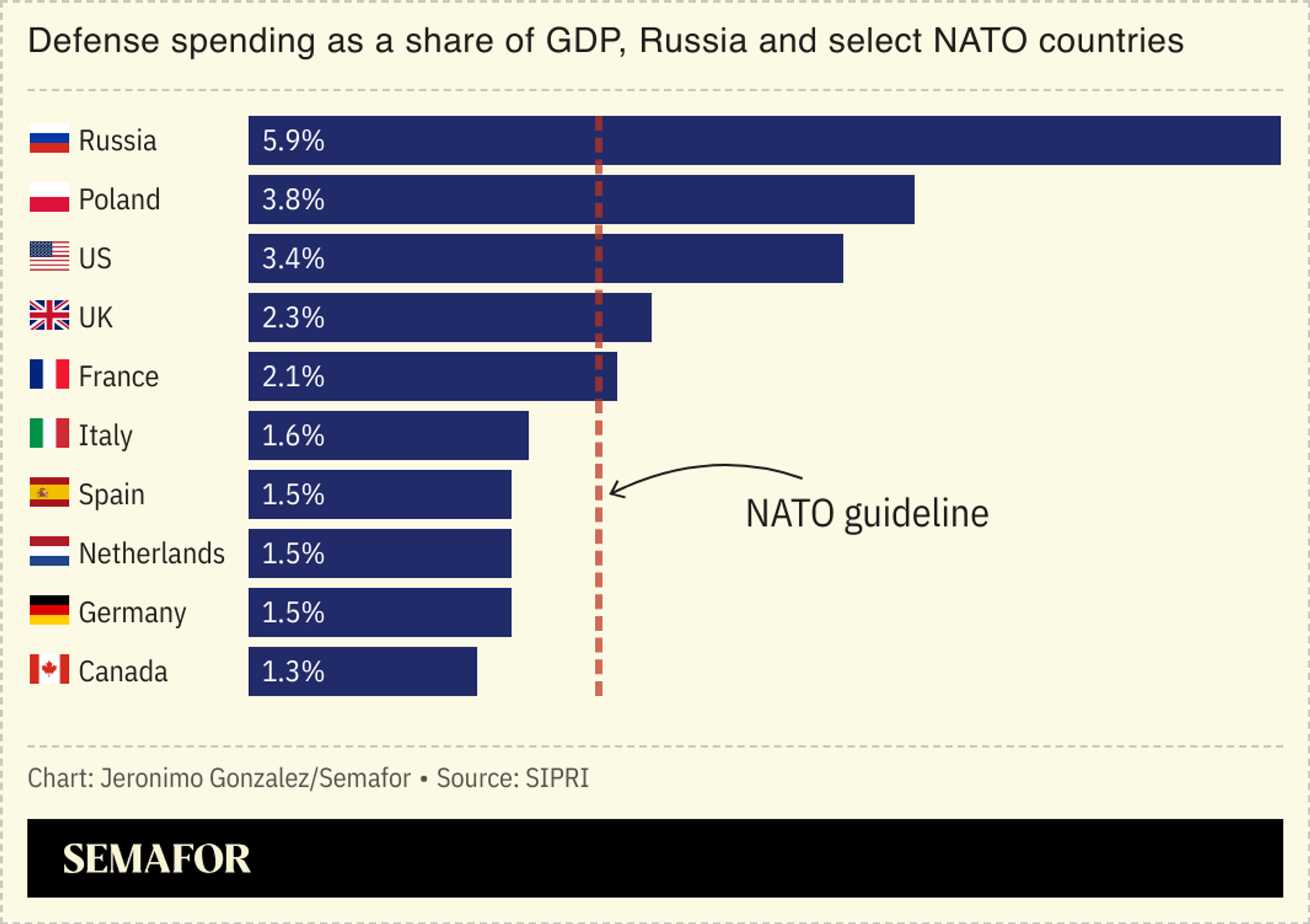The News
European leaders will seek to boost defense cooperation during informal talks in Brussels today, faced with an increasingly isolationist US and Ukraine’s mounting territorial losses.
The one-day summit of all 27 EU heads of state, plus NATO and the UK, is their first meeting dedicated exclusively to defense, President of the European Council Antonio Costa noted.
In particular, Politico reported, they will discuss ramping up military spending and Paris’ insistence that future military systems should be designed and made in Europe — both divisive issues within the bloc.

SIGNALS
Europe looks to form ‘coalition of the willing’
NATO Secretary-General Mark Rutte and UK Prime Minister Keir Starmer’s presence at the EU summit suggests the bloc is moving toward a “coalition of the willing” on defense, based on strengthening partnerships with non-EU countries and circumventing neutral and pro-Russian ones, the Financial Times reported. The UK’s Labour government wants a post-Brexit “reset” with the EU, and security cooperation has increased since Russia’s full-scale invasion of Ukraine, but the country“will inevitably experience frustrations” as a partner of the bloc due to its slowness, two security experts noted for the Royal United Services Institute in July.
EU members will need to relinquish some sovereignty over defense
Greece’s prime minister argued in the Financial Times that defense spending should be excluded from the EU’s rules limiting national budget deficits, pointing to the myriad bureaucratic challenges the bloc faces in strengthening its militaries. And some countries won’t be happy to give up even partial sovereignty over defense, though one way to bypass the need for unanimity and raise money quickly could be to let member states combine their financial guarantees, experts argued for Bruegel. The integration of national and EU defense policy could also be underpinned by collective arms procurement, direct transfers and loans to member states, as well as centralized investments in a European air defense system, they added.

